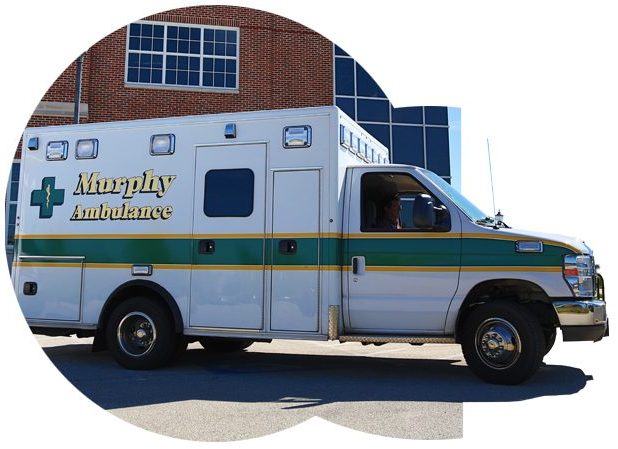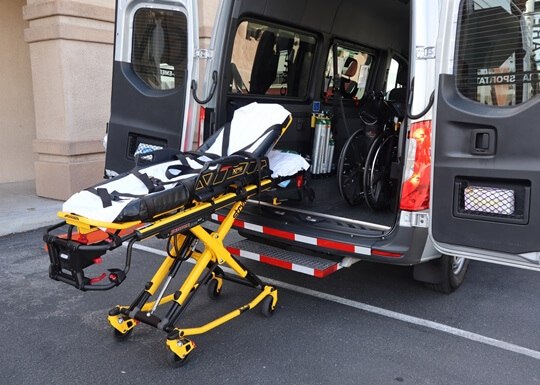Accessible Treatment on Wheels: Explore Medical Transportation Services Near Me
Easily Accessible and Affordable Medical Transportation Options for Seamless Wellness Assistance
In the realm of medical care, the access and affordability of medical transport are vital in ensuring individuals can access the treatment they require when they require it. The capacity to perfectly navigate transport choices can substantially influence a person's capacity to receive prompt medical interest, follow-up treatment, and general health. From non-emergency medical transport services to ingenious services like telehealth, the landscape of clinical transport is progressing to fulfill the varied needs of individuals. Thinking about the importance of this facet in health care delivery, discovering the array of alternatives available ends up being necessary for resolving spaces in ease of access and affordability.
Non-Emergency Medical Transport Solutions

These solutions are staffed by experienced experts who prioritize patient convenience and safety and security during transit. Motorists are equipped to deal with people with differing clinical needs and make sure that all trips are smooth and stress-free - Medical Transportation Services Near Me. Additionally, non-emergency medical transport solutions commonly use specialized cars that are wheelchair-accessible, making them suitable for a variety of clients with different mobility requirements
Volunteer Driver Programs
Volunteer driver programs contribute in providing transport aid for people looking for non-urgent clinical care. These programs rely on the kindness of volunteers that contribute their time and lorries to assist transport patients to and from medical appointments. By utilizing volunteer drivers, companies can offer an affordable service for individuals that might not have access to trustworthy transport.
Among the key benefits of volunteer driver programs is the personalized treatment and interest that clients receive. Unlike conventional transportation services, volunteer chauffeurs often develop a relationship with the individuals they assist, developing a thoughtful and helpful environment throughout what can be a stressful time. In addition, volunteer motorist programs can help link the space for individuals staying in rural or underserved locations where public transportation alternatives may be restricted.
Public Transport Options

One of the vital advantages of public transport is its prevalent accessibility in city and rural areas alike. This considerable network enables people from diverse backgrounds to take a trip to medical visits with relative simplicity. In addition, mass transit systems are frequently outfitted to accommodate individuals with handicaps, providing easily accessible traveling choices for those with flexibility challenges.

Ride-Sharing and Transportation Network Business
The evolution of modern transportation alternatives for clinical purposes expands beyond standard public systems like buses and trains to include the cutting-edge realm of ride-sharing and transport network companies. Ride-sharing services such as Uber and Lyft have reinvented the means individuals travel to clinical appointments, using convenience and versatility to individuals that might not have access to their cars or conventional public transportation. These platforms allow users to ask for a ride with the touch of a switch on their smart devices, giving door-to-door solution that can be specifically useful for individuals with movement challenges or those calling for assistance.
Transportation network companies (TNCs) have additionally played a significant role in linking the space in clinical transportation services. Companies like Veyo and RoundTrip concentrate on non-emergency medical transport, dealing with people who need a higher degree helpful during their trips to medical centers. By partnering with doctor and insurance firms, TNCs make sure visit this site right here that patients can access prompt and reputable transportation remedies, eventually adding to enhanced health end results and client satisfaction.
Telehealth and Online Consultations
Enhancing medical care ease of access and convenience, telehealth and online consultations have actually become critical parts in contemporary clinical methods, changing the way individuals interact with health care service providers. Telehealth leverages modern technology to help with remote interaction in between clients and health care specialists, providing a vast array of services such as digital appointments, remote monitoring, and electronic prescriptions. Digital appointments allow individuals to look for clinical advice, diagnosis, and therapy from the convenience of their homes, eliminating the requirement for physical brows through to healthcare facilities. This technique not only saves time and decreases transport prices for clients yet also improves the total effectiveness of healthcare distribution.
Moreover, telehealth plays a vital duty in extending clinical services to underserved communities, country locations, and individuals with limited flexibility. By damaging down geographical barriers and increasing medical care outreach, telehealth advertises early treatment, continuity of care, and person interaction. As innovation remains to development, telehealth is poised to play an increasingly significant duty fit the future of healthcare distribution, cultivating enhanced health end results and person contentment.
Final Thought

From non-emergency medical transport solutions to innovative remedies like telehealth, the landscape of clinical transportation is evolving to satisfy the diverse demands of clients.Non-Emergency Medical Transport Solutions facilitate the prompt and safe transport of individuals calling for non-urgent clinical care to and from health care facilities.The development of modern transportation alternatives for clinical functions expands beyond traditional public systems like trains and buses to include the innovative world of ride-sharing and transport network companies.Transport network business (TNCs) have also played a significant function in linking the gap in medical transport solutions. Non-Emergency Medical Transportation Solutions, Volunteer Driver Programs, Public Transportation Options, Ride-Sharing and Transport Network Firms, and Telehealth and Virtual Consultations all play a crucial function in addressing transportation barriers to health care accessibility.